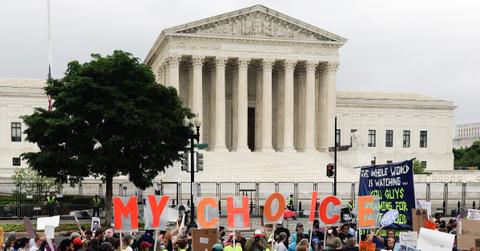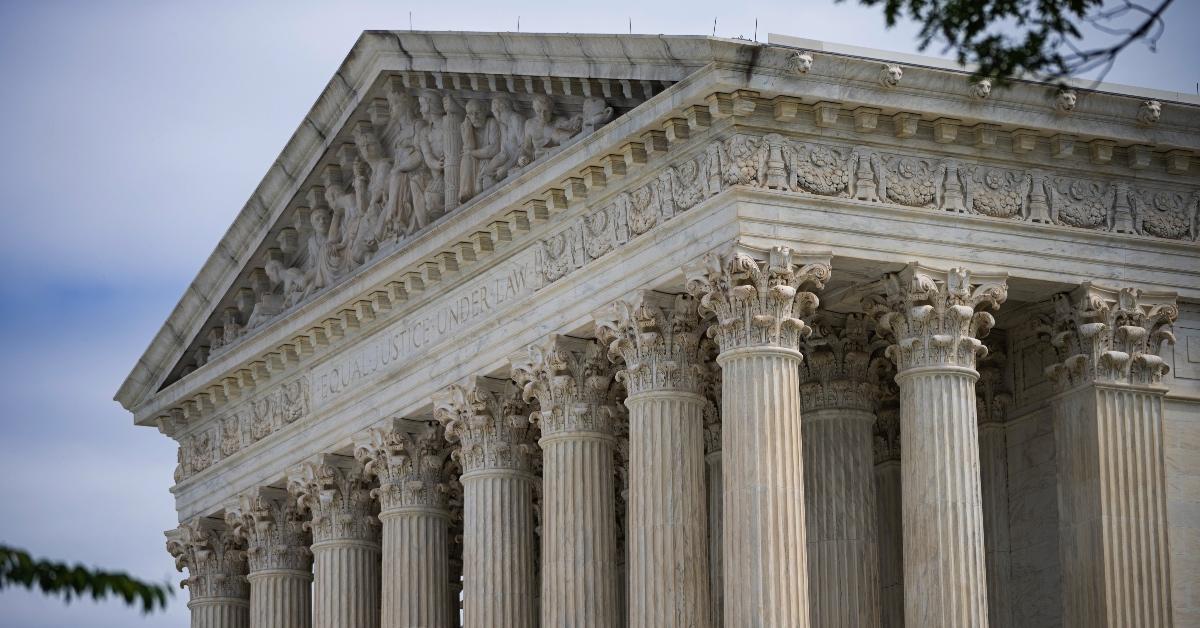Supreme Court Hands Down ‘Dobbs’ Decision, Overturns ‘Roe v. Wade'
The Supreme Court handed down its decision in the 'Dobbs v. Jackson Women’s Health' case on June 24, 2022. The ruling overturned 'Roe v. Wade'.
June 24 2022, Updated 12:51 p.m. ET

Since 2018, there has been an ongoing dispute between the State of Mississippi and Jackson Women’s Health Organization over a woman’s constitutional right to an abortion. After the organization challenged HB 1510 — a Mississippi law that would ban all abortations pre-viability beginning at just 15 weeks — the state appealed to the Supreme Court, giving rise to Dobbs v. Jackson Women’s Health.
On June 24, 2022, the Supreme Court handed down its decision in the Dobbs case. Here's a look at what the court decided.
The Supreme Court ruled in favor of ‘Dobbs,' essentially overturning 'Roe v. Wade'

The Supreme Court, known as the highest court in the land, has had possession of Dobbs. v. Jackson Women’s Health for some time now — and has finally issued its ruling, though many aren't pleased with it.
On June 24, CNBC reported that a 5-4 decision overturned Roe. V. Wade. The ruling, which now establishes that there isn't a constitutional right to an abortion, will give "individual states the power to set their own abortion laws." While there are plenty of states, roughly half according to CNBC, of them plan to "outlaw or severely restrict abortion," other states "plan to maintain more liberal rules."
Although plenty of pro-life supporters were captured outside the U.S. Supreme Court building celebrating the ruling, they were met with those who were aggrieved by the outcome. The ruling also sparked reactions from various celebrities and politicians, including former President Barack Obama.
Why was the ‘Dobbs v. Jackson Women’s Health’ case so important?
If the Supreme Court ruled in favor of Mississippi (which it did), it would overturn the decisions made in Roe v. Wade and Planned Parenthood of Southeastern PA. v. Casey. Now that 50 years of federal abortion rights have been brought to an end, states are allowed to issue more stringent bans on abortion and impose stricter regulations thereby making it even harder for a woman to obtain an abortion.
Before the Supreme Court ruling was made, women (in most states) were permitted to have an abortion performed before pregnancy is considered viable, meaning the unborn baby stands a chance at survival when outside of the uterus. The viability period (before the ruling was made) was “between 24 and 28 weeks of pregnancy,” according to the Kaiser Family Foundation.
Now, despite the recent ruling to overturn Roe v. Wade, it should be noted that there are 16 states with abortion bans in effect, preventing a woman from seeking an abortion at 22 weeks or later. Additionally, Planned Parenthood v. Casey gave states the right to regulate abortion services so as long as they don't place an “undue burden” on a woman who wishes to have an abortion.
Unfortunately, states will now be given more leeway into how they exercise their laws that restrict abortions and even permit them to create new ones.
What does the Supreme Court ruling in ‘Dobbs v. Jackson’ mean?
Because the Supreme Court ruled in favor of Thomas E. Dobbs, State Health Officer of the Mississippi Department of Health, the state is permitted to ban all abortions after 15 weeks since the first day of the last menstrual period (LMP).
While Mississippi has acknowledged that it would allow exceptions in the case of “medical emergencies and severe fetal abnormality,” it wouldn’t provide them for pregnancies stemming from rape or incest.
While many were hopeful that the Supreme Court wouldn't interfere with a woman's right to seek an abortion during the early stages of pregnancy, the leaked draft of the court’s decision to overturn Roe v. Wade left many expecting the court to act just as it did.
